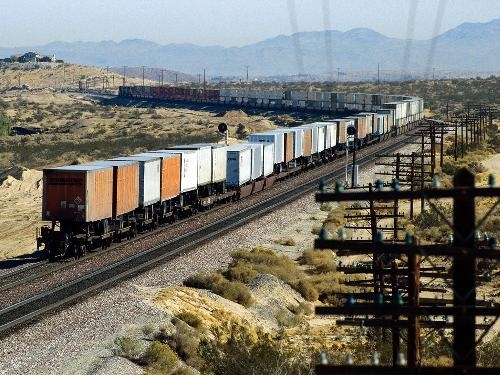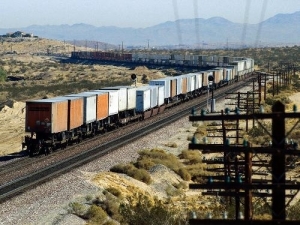Afghanistan to Benefit from BTK Railway
Afghanistan could use the Baku-Tbilisi-Kars (BTK) regional transport hub for shipping its cargo.
“Afghanistan can benefit from the Baku-Tbilisi-Kars regional transport hub in the future,” Azerbaijani political analyst and professor of Western University Fikret Sadikhov told Azerbaijan based Trend news agency on December 20th.
According to Trend, Azerbaijan and Afghanistan have close trade and economic relations and plan to implement various projects in transport and logistics.
Afghanistan’s embassy in Azerbaijan announced Afghan President Ashraf Ghani Ahmadzai’s visit to Baku on December 22nd.
Sadikhov noted, that this is not the first meeting of Azerbaijani and Afghan officials, the presidents of the two countries met at various international events and discussed the intensive bilateral relations in various fields.
During the meeting with his Azerbaijani counterpart, Elmar Mammadyarov, as part of the 70th session of the UN General Assembly, Afghanistan’s Foreign Minister, Salahuddin Rabbani, said that Azerbaijan’s political, social and economic development model is an interesting example for Afghanistan, and this undoubtedly makes the two states closer and satisfies their interests.
The BTK railway was constructed as a result of the Georgian-Azerbaijani-Turkish Intergovernmental Agreement. The State Oil Fund of the Republic of Azerbaijan (SOFAZ), finances the project in accordance with the Azerbaijani president’s decree on the implementation of the BTK project activities, dated February 21st, 2007. SOFAZ has allocated two loans, totaling $775 million for the construction of the Georgian section.
A new 105 kilometer stretch of railroad is currently under construction as part of the project. The Akhalkalaki-Marabda-Tbilisi section is also being restored, increasing its capacity to 15 million metric tons of cargo per year. A depot is under construction in Akhalkalaki, to transfer trains from the existing Georgian railway to the new European tracks.
According to the report, the peak capacity of the corridor will be 17 million metric tons of cargo per year.
“In the initial stage, this figure will be equal to one million passengers and 6.5 million metric tons of cargo.” the report states.











